Stories That Would Certainly Change Your Perspective
To give us a preview, Barbara shared one of the striking accounts in the book by Eugene McDaniel, a Naval Aviator and a Navy Cross recipient, who endured inhumane torture after taking responsibility for an unsuccessful breakout of two fellow POWs in order to stop the vicious round of tortures to the rest of the prisoners.
“…I think one of the ones that stand out in my mind is a man [named] Eugene McDaniel, and they called him ‘Red’ because he had red hair. Red was—each of the cells has a senior man in charge—and they (North Vietnamese guards) put the blame on Red that he approved of this escape. I wish he had not, but he took the blame for it because some of the others (POWs) were in such bad shape… they might not survive if they went to it (another vicious round of torture), so Red took [the blame], and they (guards) gave him electric shocks… over a period of seven days until he was literally raw.”
For his heroic actions and gallantry in stepping up for the sake of his fellow weakened POWs, McDaniel was awarded the second-highest Navy award—one of the dozen more who received recognition for showing exemplary courage and maximum resistance in the face of adversaries.
Barbara continued how heartbreaking it was to read these accounts, especially when you’ve already read them so many times. Reading them felt “as if you live them.”
“Like they touched your life. See, these men have, as I told Mike McGrath’s wife, Marlene—I said, ‘meeting you has certainly changed my life.’ And they did. It’s been a very special, special group of men.”
They were all brave men. “No doubt about it,” Barbara said. “And I wish I could remember [most] statements they made regarding these things. One was that when you’re born, it’s an accident. When you live, it’s a privilege. And when you die, it’s an obligation that you should do something worthwhile with your life. That’s [not] exactly the wording, but it’s pretty close. They all felt that they were there for a good reason, and they did the best they could … to come out with honor.”
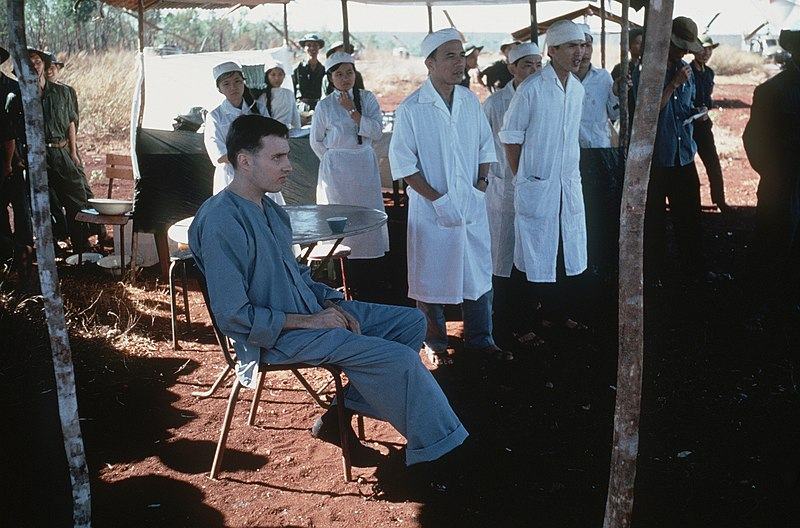
Another notable story Barbara highlighted was by Doug Hegdahl, a Navy Petty Officer 2nd Class who was granted early release from the infamous Hanoi Hilton prison camp after successfully fooling the Vietnamese guards for having low intelligence. He even earned the nickname ‘The Incredibly Stupid One‘ from the guards, subsequently given nearly free rein around the camp, seeing he was almost harmless, apart from already looking inept and feeble. In reality, Hegdahl had a great memory and took the opportunity to capture the ins and outs of the camp, and upon release, he provided the names and personal information of about 256 fellow POWs, as well as disclosed the horrible conditions of the POW camp.
Moreover, Hegdahl stood as a witness against North Vietnam with firsthand information at the Paris Peace Talks in 1970. His statements paved the way for the homecoming of the rest of the American POWs three years later, as well as provided families with the assurance of the whereabouts of the men he had taken note of.
“If nothing else, Doug was able to announce that to a number of families, which was a great blessing,” Barbara added.
Passing The Time In The Prison Camps
Aside from the “Yankee ingenuity” that rose amid the tremendous trying times inside these prison camps’ cold, harsh, poorly-maintained confines, American POWs had found ways to make their time in captivity worthwhile. Whether silently praying or reshaping whatever scraps they got in hand to create whatever they thought they might need, these men found a spark, a tiny flame of hope in the middle of the pitch-black darkness in the hell hole in Vietnam and held that until the day they’d finally go back home to their respective families.
Inside the Hanoi Hilton, for example, most captives were college graduates, and they began sharing their knowledge of expertise among themselves—which became handy later on for those who went back and pursued advanced degrees or took on a whole other career path. Foreign languages were also taught by those who were fluent to non-native speakers, such as Spanish.
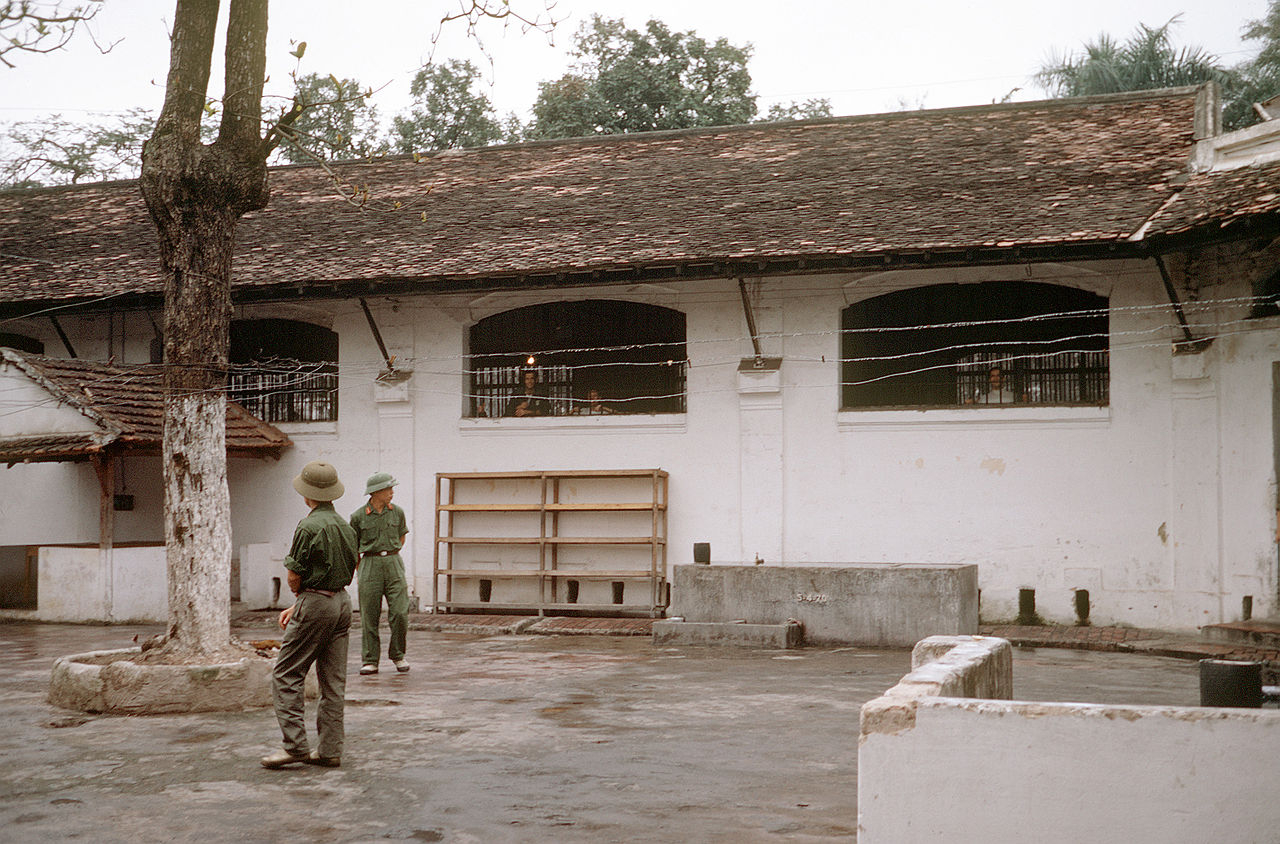
“They were starving to learn something,” Barbara recounted. “And when they all got together, if you were good at aerodynamics, then you taught aerodynamics. If you were good in Spanish, then you taught Spanish. They contributed their own expertise to their fellow [POWs], and they were just like sponges. They have to learn because they live in dark cells with nothing. No paper, no pencil. Nothing at all to do all day but sit and think about their quote-quote crimes against the enemies, the North Vietnamese.”
American POWs also created a new way of communicating with each other since talking was usually prohibited, and those who were caught breaking it were tormented with vicious punishments. So when one man finally figured out how to converse without having to really talk, the rest learned the tapping code and exhausted the new way of communication to the brim.
“They could tap as fast as I’m talking because they did it so much that they took each letter, the line that it was on, and then number that letter was in that line. And that’s the way they communicate,” the author recounted. “And if they talk, they talk through their cup. [They] had a tin metal cup, and they’d hold that up to the wall and put something around it to muffle the sounds, and that would actually communicate through the cement wall.”
Captives of the Viet Cong, the armed communists in the South, also had it equally rough with the same brutal mistreatments and poor prison camp conditions. Thus, POWs likewise innovate ways of passing their time as they wait for the day of finally being able to come home.
“It’s wonderful when the men will share (their stories) because that’s really the true history… it isn’t somebody interpreting. It’s their word. And I think that’s vitally important that it comes from them and that people can hear the concerns that they had, what they did, and how they survived and how they [held] onto their own faith. Sometimes they said they had nothing to do but pray all day, especially when they heard those keys dangling with the guards coming to their doors… that put such fear in them because it was just such a horrible, horrible thing.”
She continued: “Some men [even] said they didn’t know they could be twisted into so many different shapes … it’s an amazing thing how they ever survived.” Not only that, but a handful of them even managed to further their education, change careers, and able to move on with their lives. They didn’t come back just basket cases, considering that several of these men were placed in solitary confinement for months. Some even spent years until the war ended.
Preserving the Memoirs of the POWs
Now 91, Barbara hoped the book would “get out into the hands of our younger people.” To keep these stories alive, as well as remind them of “the sacrifices that have been made for their freedoms … and for this country.”
She further explained the importance of keeping these memoirs alive: “I think if we go back to the old statement: ‘if you don’t know your history, you’re doomed to repeat it,’ it’s certainly applicable here. The citizens of a country should know their history, the good and the bad. And if it’s bad, then fix it, or do your best to fix it, or at least make some effort. Don’t just complain… learn what caused it and see if you can make it a little bit better.”
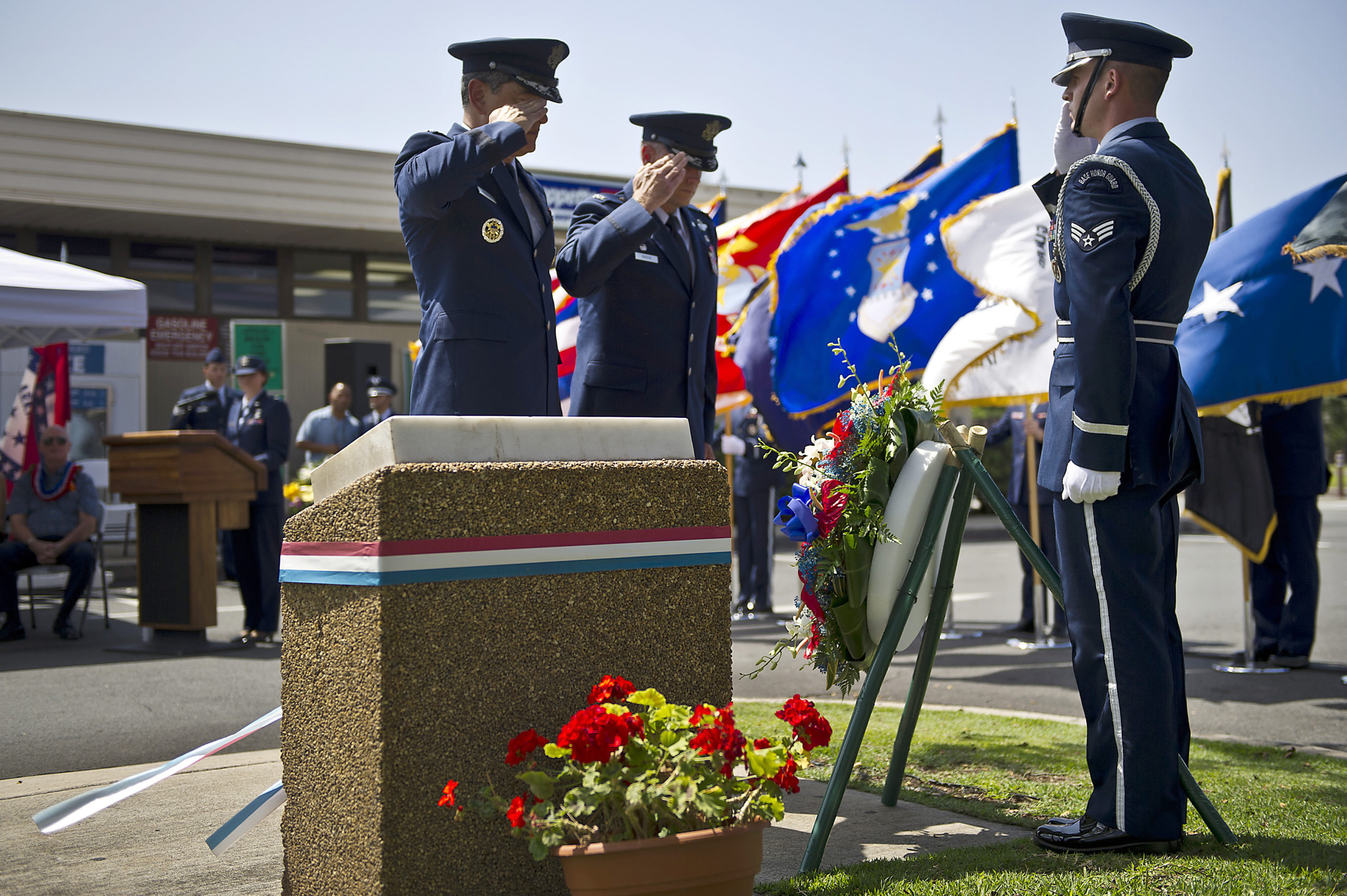
In honor of the 50th anniversary of Operation Homecoming, Barbara has released an updated version of the book, with updates on these heroic troops’ lives.
Check out the 50th-anniversary edition of We Came Home: The Firsthand Stories of Vietnam POWs here
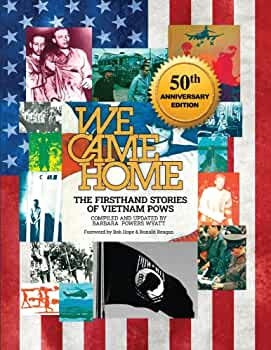



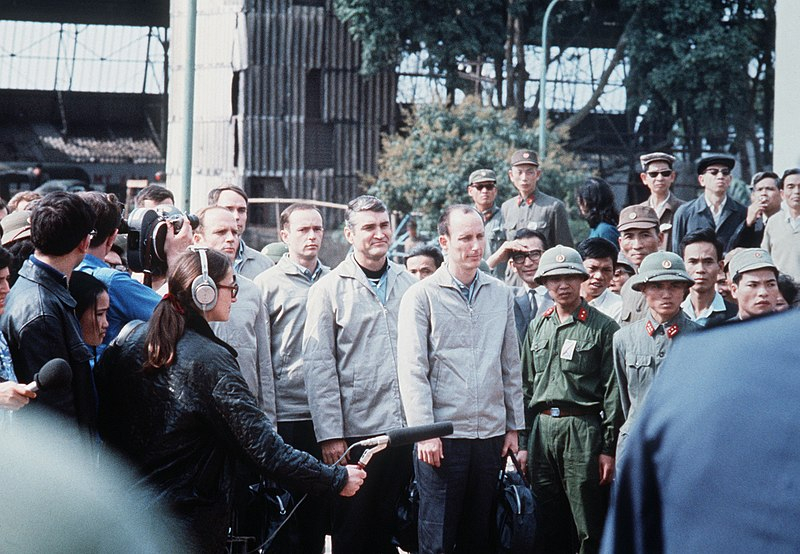








COMMENTS